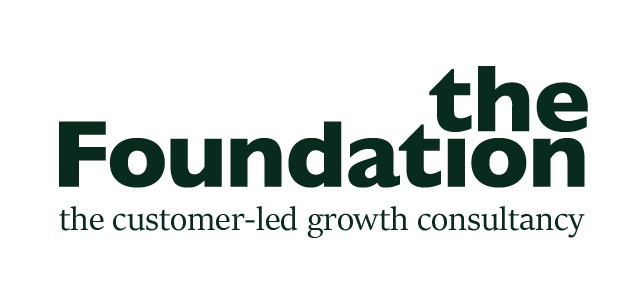Question Time
Our Partner John Sills on why companies need to focus on getting to great customer outcomes, rather than just providing answers to specific questions
Is there anything else I can help with?
Eight words. Eight, seemingly inoffensive, overly polite words. But eight words that annoy me more than any other in customer experience – because more often than not, they haven’t helped with the thing I wanted help with in the first place.
More often than not, they’ve answered the specific question I’ve asked rather than helping me achieve the outcome I wanted.
Let me give you an example.
I subscribe to a sports magazine, one of those online-only, £1 a month special offer things that gives you more articles on football than you ever realised you needed and that I’ll almost certainly cancel when the deal runs out.
Each week, they send a round-up of their latest writing, covering everything from Euro Final match reports to the life story of a Bulgarian reserve who played one match for Arsenal in 1993.
I started receiving two of these emails with slightly different content. Nothing major, but a bit annoying, so I emailed the Customer Service team:
‘Hi, a couple of weeks ago I started receiving two nearly-identical weekly digest emails from you. Have I accidentally got two accounts linked to my name or something? I don’t want to be paying twice by mistake.’
The reply answered that question but no more:
‘Hi John! Thanks for reaching out. There are no other active accounts.’
Then the dreaded:
‘Let me know if you have any other questions, happy to help!’
Well yes, anonymous emailer from anonymous online sports magazine, I do have other questions, all related to how I stop getting two identical emails from you each week.
This is a great example of focussing on the single question rather than the broader customer outcome, not considering the next question that I might have.
So I emailed back, making my next question clear:
‘Ok – do you know why I’m getting two emails then? Is one signed up via Apple?’
Their reply was stoic and resolute, refusing to give more information or help than absolutely necessary:
‘To answer your question on our end there are no other active subscriptions. Hope this helps!!!’
I took the triple exclamation mark as shorthand for ‘and I hope you stop emailing me now!!!’
So back I went, trying to make the request even more clear:
‘Hi. [Anonymous sports subscription magazine] is sending me two identical emails each week and I’d like one of them to stop. Can you help, please?’
I didn’t get a reply. But I did get two more emails on Sunday.
A similar and possibly more expensive situation happened to one of my colleagues who bought a second-hand car, a beautiful classic red Jaguar. He took it to his local garage for a few tests and a much needed tune up. A few hours work at most.
Around midday, he received this message:
‘Good afternoon. Unfortunately we’ve had some forced renovation work in our garage. Please expect some delay in this job. Sorry for the inconvenience.’
His reply was as expected:
‘Could you let me know when you expect the car to be done?’
Their reply wasn’t:
‘I’m sorry, we’re having some issues with our system. I’ll get back to you sometime’.
This issue of not answering the next question, only focussing on the specific request rather than the overall outcome, is annoying for customers and expensive for companies.
This is especially important in complex industries such as banking, insurance, and IT, where customers may know the outcome they want, but may not know the right questions to ask. People inside the industry – more familiar with the products, language, and regulations – have a crucial role to play in helping customers to navigate the complexity, not just answering the question the customer thinks is the right one to ask.
For companies, this ‘get it done’ approach creates an illusion of efficiency, showing issues being resolved quickly but missing the amount of failure demand, repeat calls, and lost customers as a result.
The anonymous sports subscription magazine and car-impounding local garage could both take a lesson from WordPress on this.
I’ve had my blog with them for years, and anytime I need help (which is, frankly, all the time), they’re brilliant at really understanding the outcome I want, and answering all questions I might have before I even know to ask them.
In fact, sometimes the issue with WordPress is that they’re too keen to help. I’ve often found myself locked in conversations with their brilliant support team, them not quite satisfied with their own (perfectly good) answer, wanting to find other ways that might help my site look better or load faster.
On several occasions, after the webchat has finished and I’ve gone away happy, I’ve had emails appear a couple of days later suggesting other ideas that they’ve been thinking about or have discussed with colleagues.
As a result, I have absolute faith that they’ll get me to the outcome I want, not just answering my question but helping me work out the right questions to be asking in the first place.
Dealing with something properly the first time not only saves time and effort for the company but builds confidence with customers that any future issues will be dealt with properly.
Now, is there anything else I can help you with?

